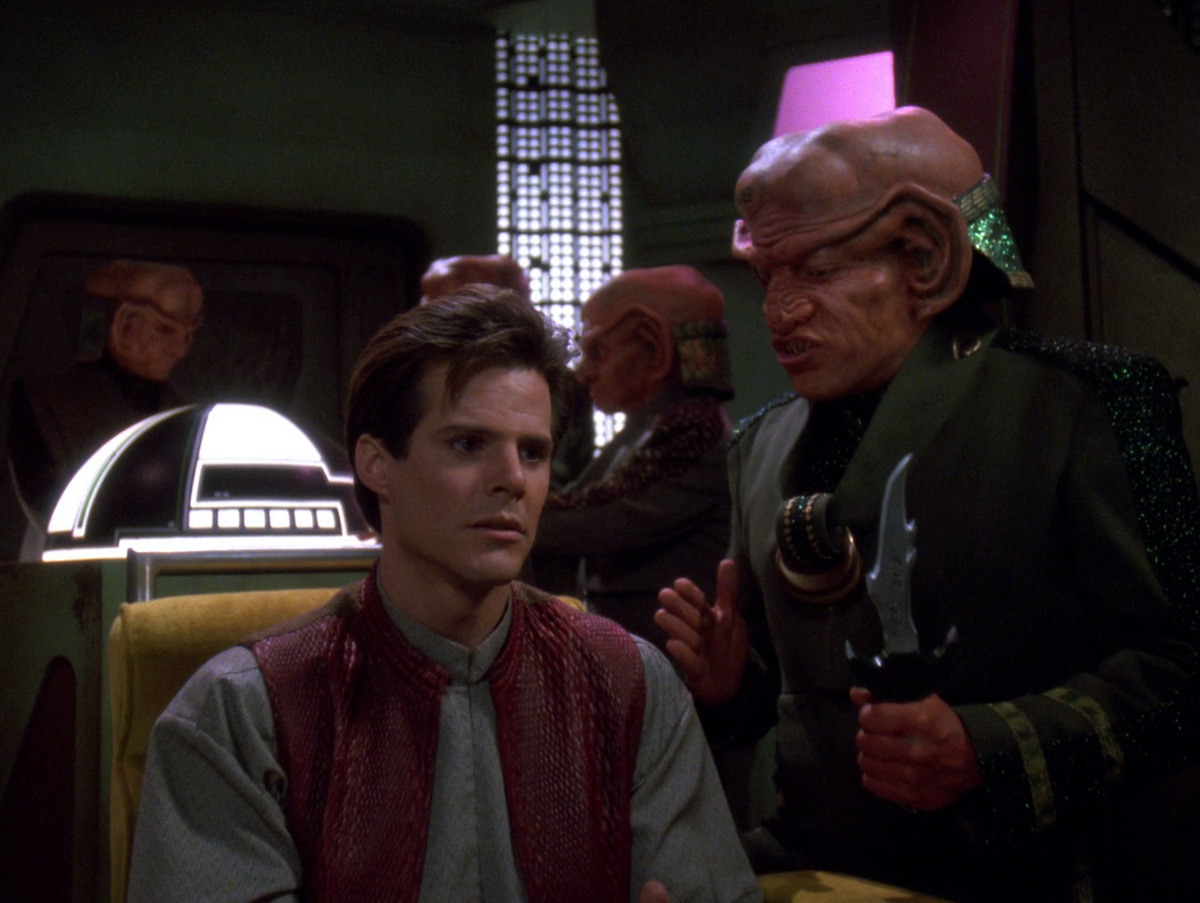“You’ll never look at your hairline again in the same way.”
For reasons I’ve never been able to suss out, Star Trek: The Next Generation spends one of its very last episodes doing a sequel to the ridiculous first-season episode “The Battle,” and does so by conjuring up a David Marcus-ish, long-lost son for Captain Picard. It’s nuts! I suppose there’s some conceptual interest in tying off the last of Picard’s long-term ambivalence about children and families by having him confront an actual (potential) offspring, but “Bloodlines” is limp – and pretty daft, too.
Let’s start with “The Battle.” It was a terrible episode, and Bok was a ludicrous villain, and returning him to the fold here for a second swipe at revenge against Picard doesn’t hold a lot of weight against some of the more formidable foes Picard has accumulated over the years. Making matters even less substantial, Bok isn’t even played by the same actor this time; Lee Arenberg (later of the Pirates of the Caribbean films) takes over from Frank Corsentino, so there isn’t any real resonance gained by bringing back a familiar character from the early days of the show.
Second strike: Ken Olandt is pretty weak as Picard’s putative son, Jason Vigo. He reminds me of Billy Campbell in “The Outrageous Okona,” but not in a good way; Olandt over-sells the amoral slacker elements in Jason’s character, but can’t find a balance between the comedy and the gravity of his situation. It feels like a missed opportunity – the son of Picard! – even though Jason doesn’t turn out to be Picard’s son anyway, so the point ends up moot.
And third: there’s pretty much no way for the treatment of Picard’s feelings about Jason not to feel like poorly-warmed-over recapitulations of the Kirk/David relationship in Star Trek II. Even though Jason isn’t Picard’s son, the emotional beats play out largely the same, with Patrick Stewart doing his best to find the emotional core of what this would mean for Picard, while being hamstrung by the outcome of the story in terms of making any of that emotion stick. It’s a thoroughly trivial episode, with nothing worthwhile to say about Picard, his past, or his feelings about family. It’s neither a final movement for the series-long theme nor an elevation of Next Gen’s lead character. As has been the case for the majority of the season, it’s all been done – and much better – before, and elsewhere.
One Enterprise out of five.

Blogging The Next Generation is winding down to the end, as I work my way through the episodes of Star Trek: The Next Generation on blu-ray. The final season is in stores now.
